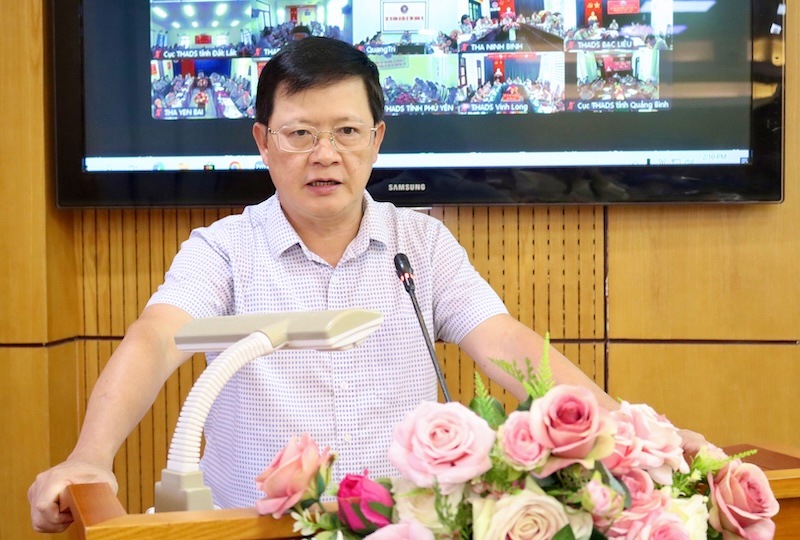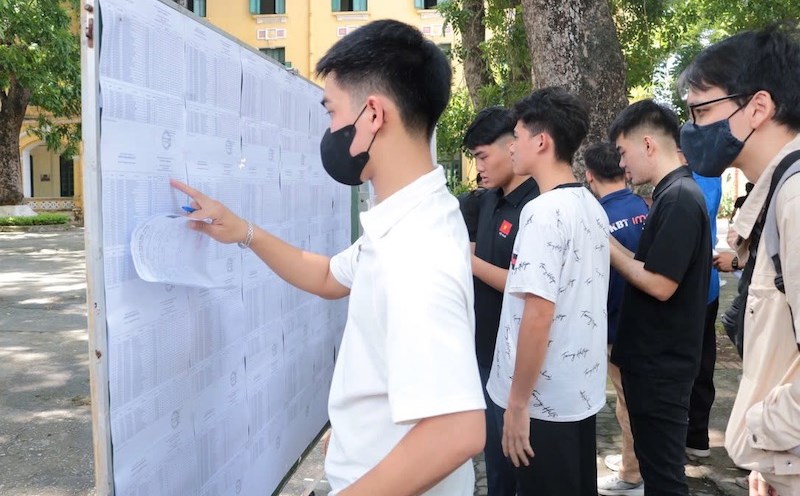Information from the General Department of Civil Judgment Enforcement said that Deputy Minister of Justice Mai Luong Khoi chaired a conference to disseminate and implement tasks associated with the Project "Continuing to arrange and streamline the apparatus of the civil judgment enforcement organization system to ensure effective and efficient operations".
Accordingly, the new model includes the Department of Administrative Judgment Enforcement under the Ministry of Justice at the central level and provincial-level administrative judgments at the local level;
The General Department of Enforcement will be reorganized into the Department of Enforcement Management, 639 District-level Departments will be merged into 34 Provincial-level Enforcement Agencies and 355 Regional Enforcement Departments.
The project also sets out 9 key groups of tasks, including: organizational apparatus, personnel, finance, legality, digital transformation, Party work and communication.
Regarding the arrangement of leaders, managers and civil servants of the civil service system, the Standing Committee of the Party Committee of the Ministry of Justice agreed on the plan to arrange leaders of the Department of Civil Judgment Enforcement, units under the Department and 34 provincial-level Civil Judgment Enforcement Departments; expected to complete the appointment before July 1.
The work of consulting with the Provincial Party Committee and the City Party Committee on political standards of provincial leaders is being implemented. For the department level, the General Department of Civil Judgment Enforcement collects local opinions, applying 5 criteria for selecting department heads, including: work results, experience, remaining working time, workload and professional qualifications; completed before June 28.
The General Department of Civil Judgment Enforcement requires the Directors of the Provincial Civil Judgment Enforcement to proactively arrange personnel in accordance with instructions. If the arrangement is incorrect, the responsibility will be handled according to regulations.
In addition, the General Department of Civil Judgment Enforcement is reviewing, arranging and resolving the leave regime according to Decree 178 for more than 620 cases, ensuring completion before July 1. At the same time, continue to make a list of days off until September 30 according to the instructions of the Ministry of Home Affairs.
Report the results of the implementation of streamlining the apparatus until the end of June 20, Director of the Department of Planning and Finance Nguyen Huy Hung requested the Director of the Department of Civil Judgment Enforcement of provinces and cities to hand over finance and assets from the District Civil Judgment Enforcement Department to the Provincial Civil Judgment Enforcement Department (to be completed before June 30).
Review and thoroughly handle the money and evidence that have been enforced; submit 100% of the revenues to the budget and temporarily held accounts at the Treasury, not leaving the fund in the balance.
Return unused enforcement funds, specifically notify the time of collection and expenditure to avoid affecting people. Temporarily stop collecting advance payment fees through the Public Service Portal from June 20 to July 1, collect directly at the civil judgment enforcement agency; declare new accounts for people to know.

Concluding the conference, Deputy Minister Mai Luong Khoi emphasized that the implementation of the Project on arranging and perfecting the organization of administrative procedures is a comprehensive, revolutionary reform step, requiring efforts, high determination and a spirit of close coordination between all levels, sectors and localities.
The Deputy Minister requested localities to urgently complete the arrangement of personnel and facilities, ensuring that the new enforcement agencies operate stably, smoothly, without interruption in receiving people and handling documents.
The assignment of staff must be reasonable and convenient for people, avoiding inconvenience when traveling. At the same time, it is necessary to fully publicize information about the new organizational model so that people can understand.
Along with that, promote decentralization and delegation of authority to localities in enforcement activities; synchronously deploy information technology infrastructure, management software, electronic receipts, connect with the Court... to modernize the process, shorten time, reduce costs and improve enforcement efficiency.











